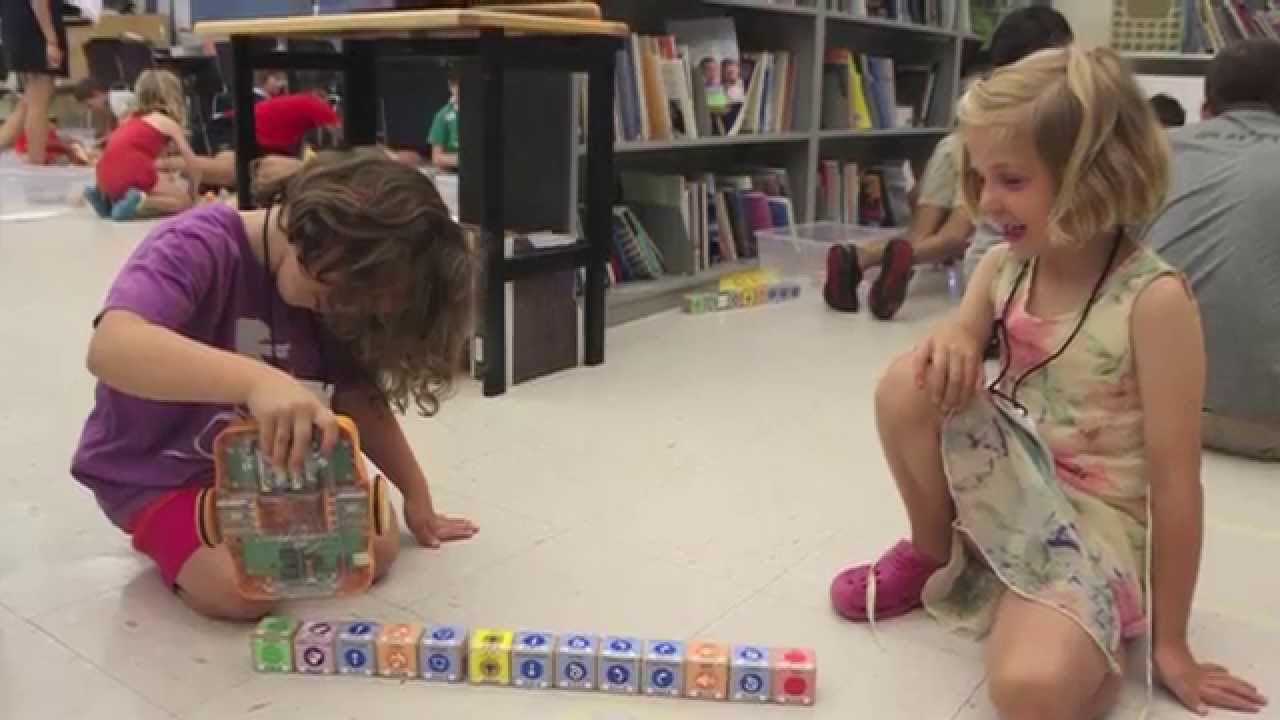KIBO Robotics Construction Kit
Since 2007, through generous funding by the National Science Foundation (NSF Grant No. DRL-1118897, DRL-0735657), the DevTech Research Group has been researching how to create a developmentally appropriate robotics construction set for young children in Pre-K through 2nd grade.
The first prototype was called KIWI and consisted of intuitive, easy to connect construction materials including: wheels, motors, light output, and a variety of sensors (Sound, Light, and Distance sensors). KIWI is designed to work without any screentime using wooden programming blocks.
The KIWI prototype paved the way to developing KIBO which is now commercially available through Kinderlab Robotics. Kinderlab just completed a successful Kickstarter campaign and would like to thank all contributors for their support!
Ready for Robotics Research
The Ready for Robotics project, led by Professor Marina Umaschi Bers from the DevTech research group at Tufts University and funded by the National Science Foundation (grant # NSF DRL-1118897). This research project focuses on two components of STEM, the “T” of technology and the "E" of engineering that have been the most neglected in early childhood education.
As part of this project, we created and evaluated a developmentally appropriate robotic system for young children, called KIBO (formerly known as “KIWI” or Kids Invent with Imagination), that can be programmed with our tangible programming language made of wooden blocks. KIBO is now commercially available through KinderLab Robotics. Additionally, we have developed strategies for integrating its use in early childhood classrooms by designing curricular units that integrate programming and engineering with other subject areas, as well as professional development strategies.
All of our robotics and programming tools, curriculum, and professional development materials are based on rigorous quantitative and qualitative research conducted with children, parents, and teachers. KIBO is now used in more than 30 countries worldwide. Please see highlights from a recent research study in Singapore below.
KIBO Research Highlight Video: KIBO in Singapore
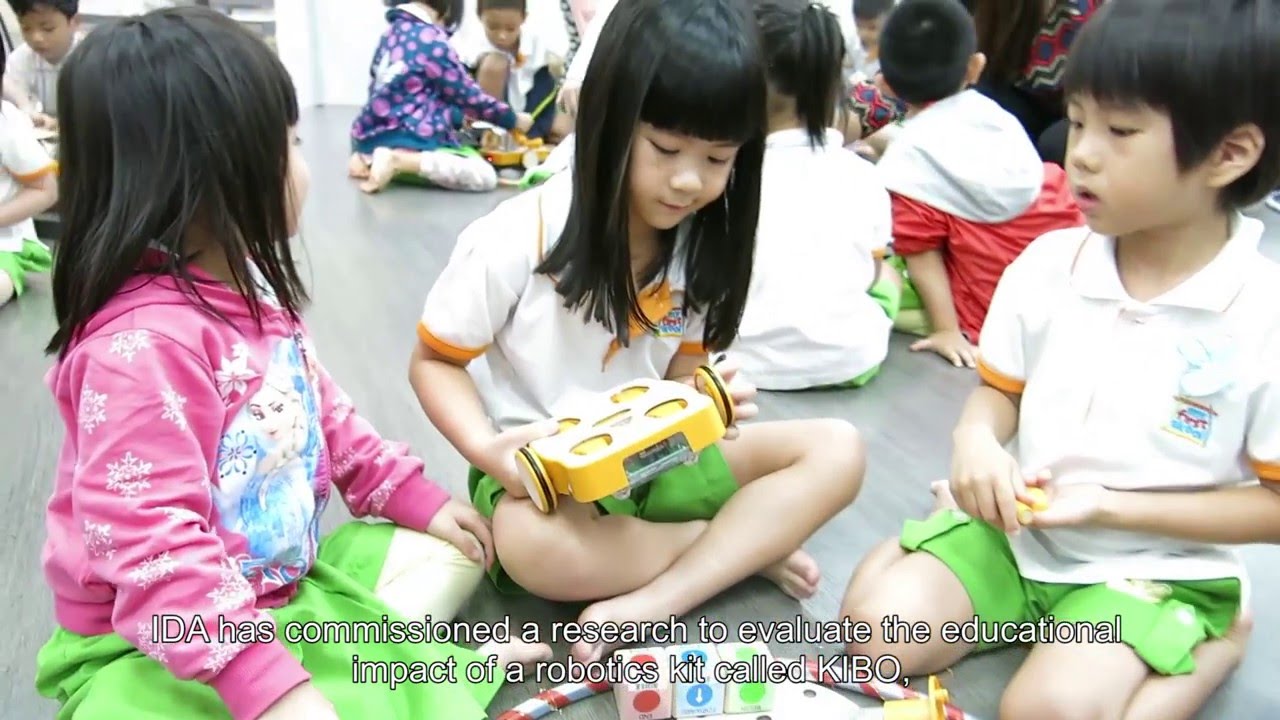
Research Questions
Our research contributes to the fields of STEAM education and learning sciences. We investigate the following research questions:
1) How do we design a developmentally appropriate robotics kit for young children?
Since 2011, the KIWI prototype (now called KIBO) has gone through several design iterations (and has been tested in numerous public and private schools in the greater Boston area as well as in summer camp and lab settings. This testing with children and teachers has informed teach stage of the re-design of KIWI and the commercially available KIBO robotic kit.
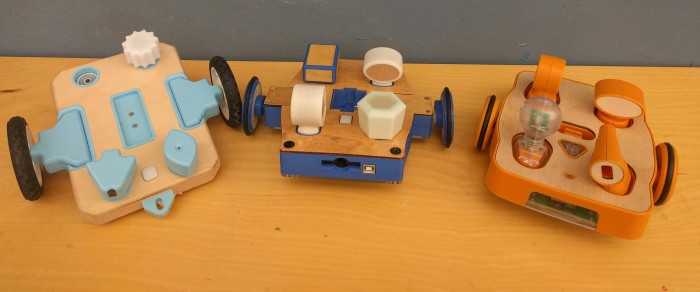
The image above displays the design changes made to the KIBO robot over the years beginning in 2011 [light blue, pictured far left] to the newest commercially available model [orange, picture far right]. Design changes were made based on ongoing pilot-testing and direct feedback from early childhood educators and children.
KIBO is programmed using tangible wooden programming blocks- no screentime required! The child creates a sequence of instructions (a program) using the wooden blocks and KIBO reads the barcodes with an embedded scanner. With the press of a button children watch the robot come alive (see image below)! The KIBO programming language contains 18 unique blocks and 12 unique parameters leading to endless creative possibilities.
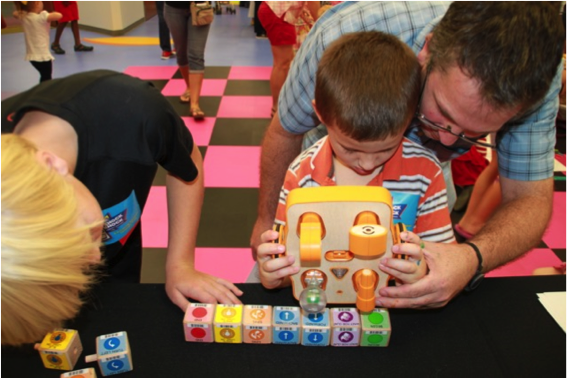
To find out more about how we designed KIBO please see: Sullivan, A., Elkin, M., & Bers, M. U. (2015). KIBO Robot Demo: Engaging young children in programming and engineering. In Proceedings of the 14th International Conference on Interaction Design and Children (IDC '15). ACM, Boston, MA, USA.
2) What strategies and materials do early childhood teachers need to integrate robotics activities into their teaching?
Developmentally appropriate robotics tools, such as KIBO, are not enough to foster positive learning experiences in the classroom. Developmentally appropriate curriculum and pedagogy, along with confident and competent teachers, are also required for any robotics curriculum to be successful. One of the major impediments faced by early childhood educators is a lack of knowledge and understanding about technology and engineering, and about developmentally appropriate pedagogical approaches to bring those disciplines into the classrooms.
In order to address this need, the DevTech Research Group hosts robotics and programming professional development institutes and workshops throughout the year. If interested in finding out about upcoming workshops, please add your name to our mailing list. For more in-depth teacher preparation please see our Early Childhood Technology Certificate Program.
To find out more about research results from our professional developments, please see: Bers, M.U., Seddighin, S., & Sullivan, A. (2013). Ready for robotics: Bringing together the T and E of STEM in early childhood teacher education. Journal of Technology and Teacher Education, 21(3), 355-377.
3) What do young children learn with robotics?
Over the past five years, we evaluated the KIWI prototype with approximately 50 teachers and 100 students in grades PreK to 2nd. We learned that children as young as 4 can learn to program a simple robot. We also learned that, through the use of robotics, young children can master foundational engineering and programming concepts such as: the engineering design process, sequencing, repeat loops, conditional commands. Finally, we also saw that young children were capable of, and interested in, doing more artistic design and building with their robots.This led to the development of KIBO which features additional parts including art platforms. Please join the Early Childhood Robotics Network to see videos, learn about our curriculum, find resources, and more.
Please see our Publications Page for research results on children’s learning in the following areas of robotics:
Children’s mastery of robotics and engineering concepts
Children’s mastery of programming
The impact robotics on sequencing ability
Gender differences and the impact of gender stereotypes
Resources
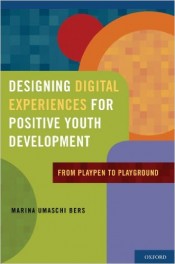
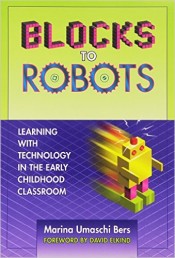
Publications and Papers: For a list of publications related to the topic of robotics, please visit the DevTech Publications Page.
The Early Childhood Robotics Network: The Early Childhood Robotics Network is a place to connect educators interested in using robotics in their early childhood classrooms. Visit the Early Childhood Robotics Network to find useful resources such as:
Full curriculum downloads
Curriculum development materials
A help forum
Teaching videos
Project videos
